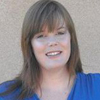
Modern Family creator Steven Levitan said, “This might be the saddest Emmys of all time” while accepting his award for best comedy. I argue that this may be the whitest Emmys ever. Whiter than other Emmys? Probably not. But it feels that way. And it feels a little homophobic, too.
Every, single winner on the awards show was white. Levitan’s comment was in reference to the many, sad “in memoriam” segments in the show. I think it was sad, too, because I’m saddened by television’s lack of commitment to strong roles for people of color.
Television may offer more lead and supporting roles for people of color than in the past. Then why aren’t people winning awards for those roles? Why aren’t they even being nominated? Kerry Washington was the only person of color nominated this year, for best actress in a drama for the awesome Scandal. No African-American woman has ever won this category. Personally, I think she was cheated, but I acknowledge that her fellow nominees were amazing, too.
Mindy Kaling, the only Asian lead actor on any network show, wasn’t nominated for acting in or writing The Mindy Project.
More roles may be offered to people of color, but that doesn’t mean the roles are what critics consider “quality television,” which is itself a white construct. For example on Lifetime, Devious Maids, created by Desperate Housewives' Marc Cherry, has five Latina main characters. Even the title brings up old, tired stereotypes about Latinas. Let’s face it, Marc Cherry doesn’t have a history of writing strong characters for women of color. Desperate Housewives featured a fiery, sexy Latina stereotype played by Eva Longoria. The reviews of Devious Maids are lukewarm, and its flat characters won’t likely win any awards.
There may be systemic racism in the Emmys voting and nomination systems, which leads to people like Mindy Kaling not receiving nominations. But moreover, what leads to this is a white bias in casting and narrative development.
Take New Girl. Winston (Lamorne Morris) is the only non-white roommate in the show. However, his character is glaringly undeveloped, as many people have noted. If he has his own story arch, it’s self-contained and has little to do with the other characters. They throw character trait after character trait at him, literally changing his character almost every episode.
Lamorne Morris is great in the role. But honestly, he shouldn’t have to do so much with so little. The writers are highly capable. Surely they can create a character for him like they did the other roommates. In 2012, two of the white stars of the show received emmy nominations: Zooey Deschanel for lead actress in a comedy and Max Greene for supporting actor. The ever-oscillating Winston character is unlikely to receive a nomination the way the role is written now.
Actors of color need multidimensional roles that are highly developed and engaging if they are to win awards. Clearly, we don’t have a shortage of awesome non-white actors. But those great actors are often written out of the awards.
While we’re seeing more gay characters in television than in the past, the actors can’t let that go by without some gay jokes. Sigh. Last night at the 2013 Emmys, Michael Douglas won best actor in a TV movie or miniseries for playing Liberace in Behind the Candelabra opposite Matt Damon. This morning, the news was ablaze with talk about his speech, either that people are shocked that Michael Douglas wore his wedding ring and thanked Catherine Zeta-Jones, since they’re separated, or that he mentioned his son in prison. His speech was even called “brilliant” by U.K. Yahoo News. I applaud him for critiquing the treatment of non-violent drug offenders by the U.S. prison system backstage after his award.
But I’m here to talk about something else, something that media coverage of the speech is ignoring: Michael Douglas’ need to make jokes about being gay at the beginning of his speech. When he took the stage, Douglas said to Matt Damon, who played Douglas’ love interest in the film, “This was a two-hander, and Matt, you're only as good as your other hand. You really deserve half of this, so you want the bottom or the top? The top, I figured that." The audience roared with laughter because the thought of Douglas and Damon as gay was apparently hilarious.
Michael Douglas needed to assert his straightness at the awards, in a way that was disrespectful to the character he played, Liberace. Louis Virtel of Backlot claimed the comments “wreaked of sunny, celebratory gay panic” and added, “Right, as if the most hilarious, ludicrous thing about Liberace was that he was gay.” It was really clear that Douglas wasn’t winning an award for writing.
I know, I know, it’s “just a joke.” But imagine if the tables were turned. What if a major star made these comments in an award show speech to an actress with whom he had love scenes? The audience would have likely been disgusted by the lack of respect.
Furthermore, consider what it would be like if a gay actor had to assert his gayness in that way. Imagine if Matt Bomer accepted an award for White Collar (in my dreams, I know) and made jokes about having sex with his character’s love interest, and the audience roared with laughter because the idea of this gay star enjoying straight sex is hilarious.
Louis Virtel (@louisvirtel) tweeted it best: “Finally, Michael Douglas, the real reason we’re here: to see straight men make gay jokes and feel edgy about it. #Emmys”



Responses to “Whitest Emmys Ever (and Michael Douglas’ Gay Jokes)”